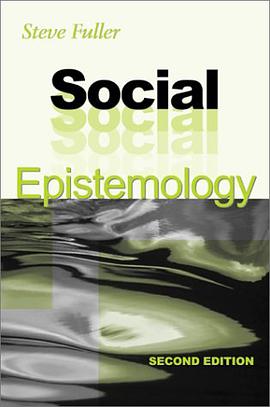

具体描述
Japanese manufacturing firms established in Britain have often been portrayed as carriers of Japanese corporate best practice for work and employment. In this book, the authors challenge these views through case study research, undertaken at several Japanese manufacturing plants in Britain during the 1990s. The authors argue that in actual fact production and employment regimes are adapted and 're-made' in a number of ways, responding to specific corporate and local contexts. In particular, they focus upon the ways in which Japanese and British managers have sought to construct distinctive work regimes in the light of their particular branch plant mandates and competencies, the evolving character of management-worker relations within factories and the varied product and labour market conditions they face. The book highlights the constraints as well as the opportunities facing managers of these greenfield workplaces, and the uncertainties that continued to characterize the development of management strategies. Ultimately the authors show how arguments about the role of overseas branch plants in the dissemination of management practices must take more careful account of the varied ways in which such factories are implicated in wider corporate strategies. The operations of international firms are embedded within intractable features of capitalist employment relations, especially as they are 're-made' in specific local and national settings. This book is an important intervention in contemporary debate about international firms and globalization, and will be of interest to teachers, researchers, and advanced students of this subject from disciplines including Business Studies, Organization Studies, Industrial Relations, Sociology, Political Economy, and Economic and Social Geography.
作者简介
目录信息
读后感
评分
评分
评分
评分
用户评价
说实话,我最初抱着一种将信将疑的态度开始阅读这本书,毕竟市面上同类主题的书籍已经汗牛充栋,很难再有能让人眼前一亮的。然而,《Assembling Work》在处理核心议题时,展现出了一种近乎偏执的细致和锐度。它没有停留在表面化的描述,而是深入到事物运作的肌理之中,用一种近乎解剖学的方式,将那些原本被我们视为理所当然的结构一一拆解开来。我感觉作者对每一个细节都进行了长期的观察和沉淀,才能提炼出如此精炼且富有洞察力的论述。那些看似枯燥的论证过程,在作者的笔下却变得引人入胜,充满了智力上的挑战与快感。特别是书中关于“系统耦合性”的分析,我过去从未从这个角度思考过相关问题,这次阅读无疑为我打开了一扇全新的窗户,提供了非常实用的思维工具。对于那些追求深度思考的读者来说,这本书绝对是近几年难得的佳作,推荐给所有对事物本质感到好奇的朋友。
评分坦白说,这本书的阅读门槛不算低,它要求读者具备一定的背景知识和持续的注意力。对于那些习惯于快速消费信息的人来说,可能会觉得它略显“厚重”或节奏偏慢。然而,如果能沉下心来,耐心跟随作者的思路前行,你会发现每一次的“慢”都是为了更扎实地打下基础。作者似乎并不急于抛出结论,而是花费大量笔墨来铺陈背景、建立前提,这种循序渐进的方式,反而建立了一种无可辩驳的说服力。我特别欣赏其引用的那些跨学科的理论支撑,它们严谨地构成了论证的骨架,让整本书的观点坚不可摧。合上书本时,我没有感到疲惫,反而有一种被重新校准过的清醒感,仿佛世界在我眼中被重新对焦、清晰化了。对于需要进行深度项目规划或结构化思考的专业人士来说,这本书简直是一本隐形的教科书。
评分读完这本书,我最大的感受是作者在平衡“宏大叙事”与“个体经验”方面的功力深厚。一方面,它探讨的问题宏大且具有普适性,关乎我们如何构建和理解周遭的世界;但另一方面,它又没有忘记每一个构成这个世界的微小单元——那些鲜活的个体。书中穿插的那些小人物的故事,虽然篇幅不长,却充满了人性的光辉与无奈,它们如同散落在巨大织锦上的彩色丝线,为整体的灰色调增添了必要的温度和维度。我尤其为其中一个关于坚持与妥协的章节所触动,它让我反思了自己过去在面对选择时的态度。这种将复杂的哲学思考与日常生活的琐碎细节完美融合的能力,是很多同类型作品所欠缺的。这本书的层次感非常丰富,初读是故事,再读是方法论,三读则是关于人生的寓言,非常耐读。
评分这本《Assembling Work》的装帧设计简直是艺术品,那种厚实的纸质和细腻的触感,每一次翻页都像是在进行一场庄重的仪式。我尤其欣赏封面那种深邃的蓝色调,配上烫金的标题字体,散发出一种沉静而有力的气质,让人迫不及待想深入其中。初读时,我被它流畅的叙事节奏所吸引,作者仿佛是一位技艺高超的建筑师,巧妙地构建了一个复杂而又逻辑严密的文本结构。章节之间的过渡自然得如同水流汇入江海,没有丝毫的生硬感。书中的某些段落,尤其是在描述角色内心挣扎和环境渲染的部分,其文字的密度和意象的丰富性简直令人叹为观止,需要反复咀嚼才能体会到其中蕴含的深层意涵。读完之后,我有一种强烈的满足感,感觉自己的精神世界被极大地拓宽和充实了。这本书不仅仅是讲述了一个故事或阐述了一个观点,它更像是一次思维的马拉松,带领读者挑战自身的认知边界,非常值得收藏和细细品味。
评分这本书给我的整体感觉是极其“冷静”的。它的叙事基调非常克制,没有刻意煽情或夸张,一切都以一种近乎客观记录的方式铺陈开来。这种冷静反而产生了一种强大的张力,让读者必须调动自己所有的感官和理解力去捕捉那些隐藏在文字背后的情感暗流和微妙的语境变化。我特别喜欢作者在描绘工作场景时所使用的那些专业而准确的词汇,它们不是为了炫耀学识,而是为了精确地构建出那个特定的工作环境的氛围。每次阅读时,我都能清晰地“听见”那些机器运转的声音,感受到空气中弥漫的特定气味。这是一种非常沉浸式的体验,仿佛我本人也成为了参与者之一,亲身经历着那些复杂的工作流程。这种高度的真实感和细节的把控,使得这本书的价值远远超越了普通的阅读体验,它更像是一份详尽的田野调查报告,但又具备了极高的文学水准。
评分 评分 评分 评分 评分相关图书
本站所有内容均为互联网搜索引擎提供的公开搜索信息,本站不存储任何数据与内容,任何内容与数据均与本站无关,如有需要请联系相关搜索引擎包括但不限于百度,google,bing,sogou 等
© 2026 book.quotespace.org All Rights Reserved. 小美书屋 版权所有




















